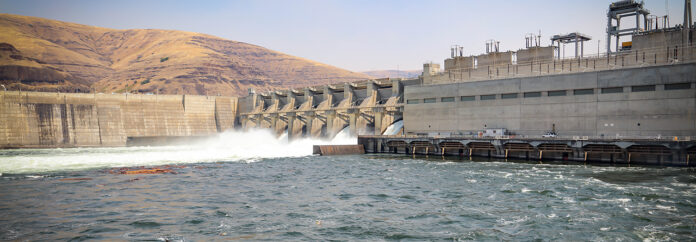Newly disclosed settlement documents have brought to light the Biden Administration’s potential consideration of removing four lower Snake River dams, prompting scrutiny from officials at Flathead Electric Cooperative. They argue that the prospective decline in hydropower production may result in increased rates for cooperative members.
Katie Pfennings, the community relations manager at Flathead Electric Cooperative, expressed grave concerns about the potential impact on Western Montana residents. The dams in question are situated within the Columbia River basin, accounting for 60-70% of the electrical needs in the Pacific Northwest, according to the U.S. Bureau of Reclamation. The basin spans 258,000 square miles, with the Hungry Horse Reservoir at its apex.
The contested dams on the Snake River contribute hydropower to electric cooperatives across the Northwest, including those in Western Montana overseen by the Bonneville Power Administration. This administration markets wholesale electrical power from 31 federal dams through the Federal Columbia River Power System. The Columbia River system has been entangled in prolonged litigation, with recent mediation efforts focusing on tribal treaty rights to a sustainable salmon fishery in the basin.
A leaked proposal last month suggested removing four Snake River dams to restore fisheries, necessitating congressional approval and the development of alternative electricity sources. Pfennings asserts that the dams’ removal would fundamentally alter the operation of the federal Columbia River hydro-system. While the settlement does not explicitly mandate dam breaching, it calls for substantial operational changes, including nearly $1 billion in high-cost projects that could pave the way for future breaching, Pfennings noted. She warns that the financial burden of these projects might fall on energy consumers and taxpayers.
Courtney Stone, the communications and marketing supervisor at Flathead Electric Cooperative, emphasizes that the agreement jeopardizes their mission to provide affordable and reliable power to members. Montana’s congressional delegation, including U.S. Reps. Ryan Zinke and Matt Rosendale, expressed disapproval during a House Water, Wildlife, and Fisheries oversight hearing. Zinke emphasized the reliability, affordability, and abundance of hydropower, expressing concern over the exclusion of affected parties from the settlement.
Pfennings agrees, pointing out that Montana and Idaho were omitted from the negotiation processes despite having a significant stake in the matter. The looming deadline for agreement submission to a federal judge is December 15, with Pfennings, Stone, and the cooperative hoping for a denial rather than affirmation of the settlement.
By: Montana Newsroom staff




